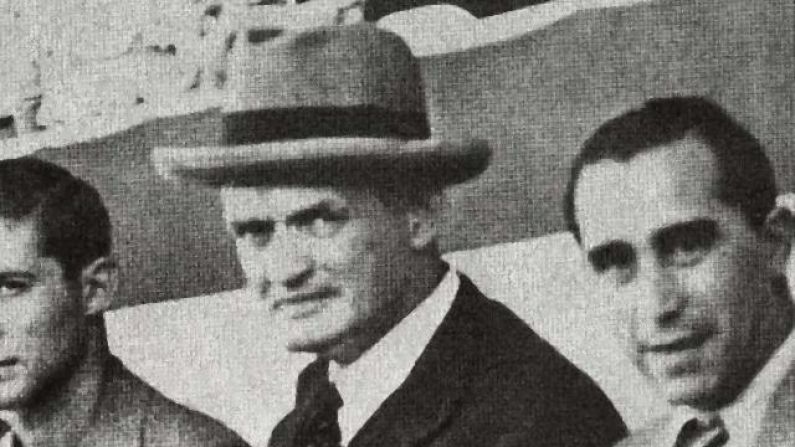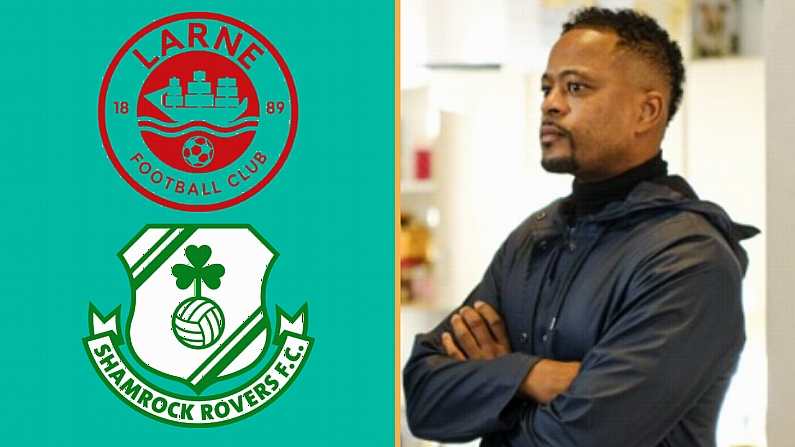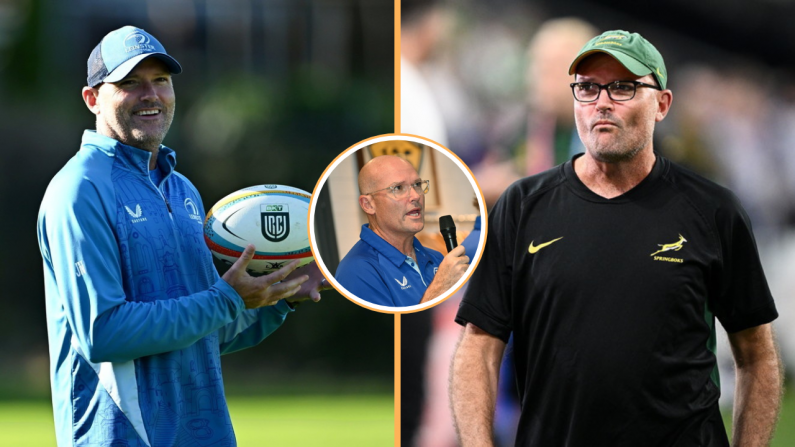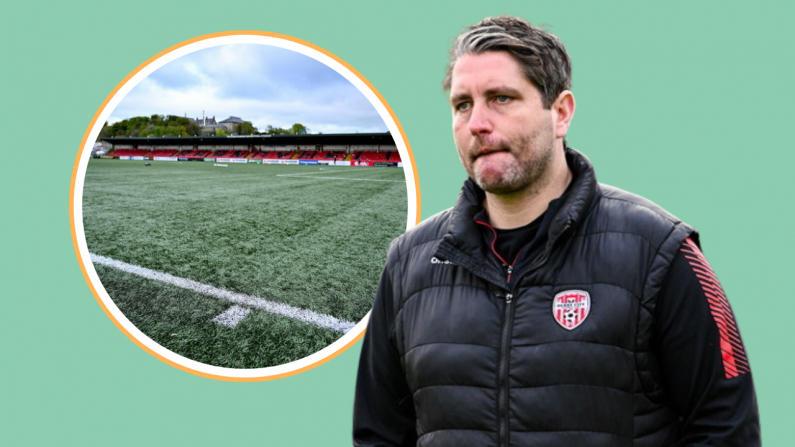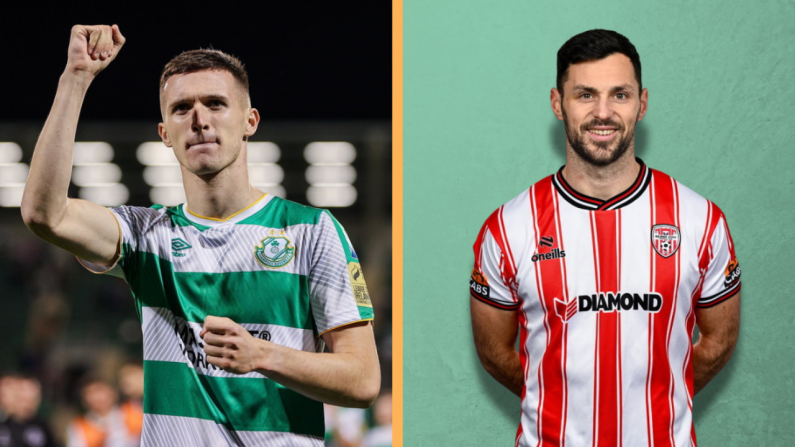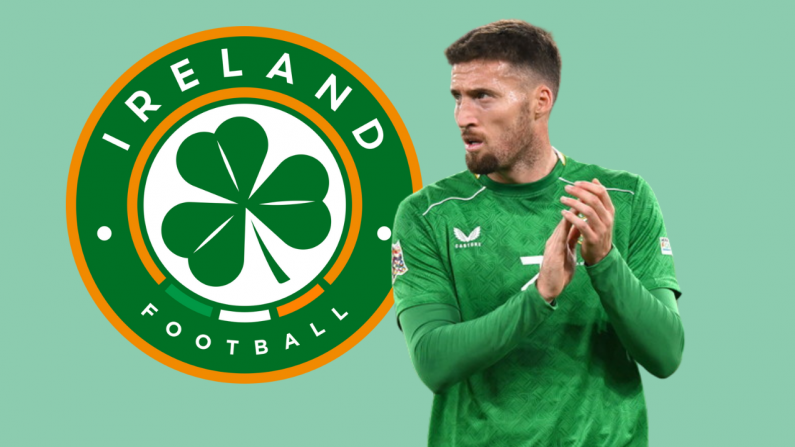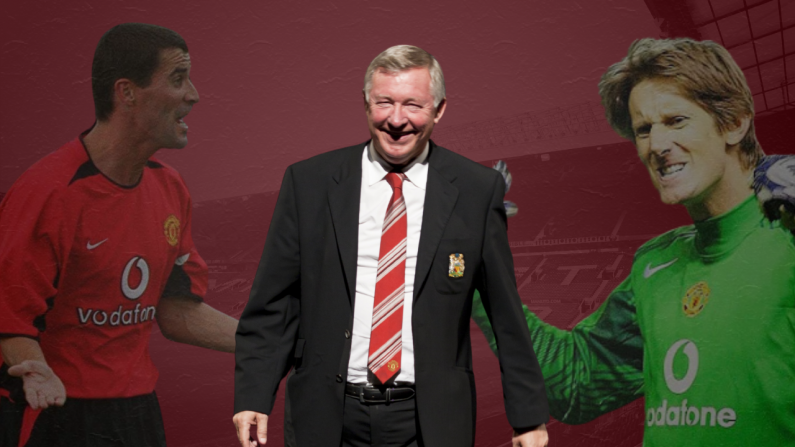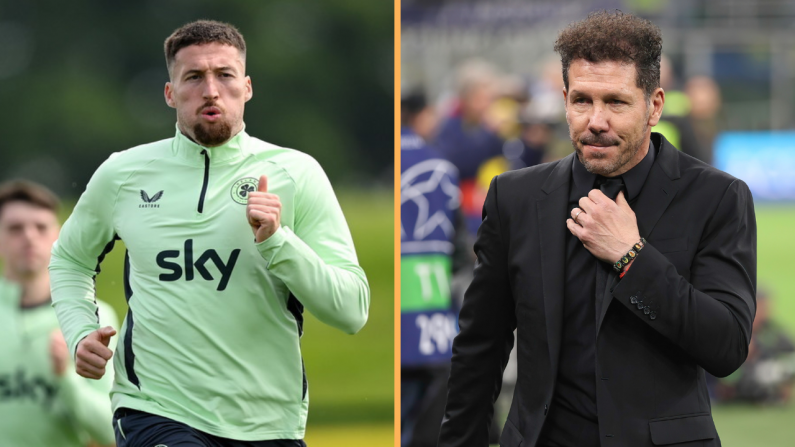His story had everything.
-Michael Andersen, director of Don Patricio
The story of Patrick O'Connell is too good not to tell. It's a tale of success and tragedy, triumph and scandal. But for decades it went untold, as his body lay in an unmarked grave in London. His grandson Mike, alongside his wife Sue, tried to contact football clubs and media in an effort to get his story out there, but no one cared. How foolish they all must feel with a film about the Irishman hitting our screens today.
Ahead of the film premiere I spoke with Michael Andersen, the director of Don Patricio, the biopic detailing the amazing journey Patrick O'Connell took during his life.
Like many people however, Michael didn't have a clue what that story entailed. It was only one day while he was perusing through his Twitter timeline that he happened upon it:
I thought, 'that can’t be true, I’ve never heard about it! I like football and history. How have I not heard it?' Weird.
Now that he knew it existed, he had to find out more. He tracked down Fergus Dowd, co-founder of the Patrick O'Connell Memorial Fund, and was soon deep in conversation:
Two and a half hours later I had pages of notes written down from our conversation. After that Fergus and I agreed we should do this documentary. And that was about three years ago.
What was it about Patrick O'Connell made the story so compelling?
As a footballer he lead Ireland to their first competitive trophy, the Home Nations Championship, he was the first first Irishman to captain Manchester United, and broke the world transfer fee record when he moved there as well. As a manager he had incredible success in Spain with Real Betis and Barcelona, the latter he is credited with saving from extinction.
These are all very interesting facets of his story, but there are many figures in football with similar levels of success, as well as clubs that are saved from bankruptcy on a yearly basis. Where are the films on those people? It's only when you look beyond the sporting side of things that you find a truly compelling character.
"Nobody wants to make a film about a saint," Michael explains, "And the more we dove into his story the clearer it was that he’s definitely not a saint."
That might be putting it mildly.
He left behind one family in England with a young wife and four children. He went off to Spain and they got a little money in envelopes from time to time, a few pesetas. That sort of petered out and he found another wife in Spain, who he married bigamously. She was also Irish. She had the same first name and almost the same look as his first wife, so I don’t want to be too flippant but he clearly had a type.
So he wasn’t a saint, there are stories of more womanising. Actually the reason why he went to Spain in the first place is that he supposedly had an affair with a daughter of one of the directors at one of the club’s that he played in and managed, which is probably not a good idea under any circumstances.
He had a colourful private life. He goes to Spain and he did not talk to or hear from his first family for 30 years. He meets one of his four children and they didn’t hit it off at all. That was basically his connection with his first family. So that’s the personal side.
Michael says he didn't want to make a "moral story" or morality play, but when you add the elements of his personal story with the footballing side, you really do get everything all in one.
Although his early footballing career is one of success -- the aforementioned Home Nations glory, three consecutive Empire Cup wins with Liffey Wanderers, the first Belfast Celtic player to score a hat-trick against Linfield at Windsor Park -- his move to English football is a letdown.
A poor spell was followed by another at Sheffield Wednesday, but his persistence means he didn't lie down easily. A tough central defender, who may very well be called a shithouse if he played in the modern game, refused to feel sorry for himself. Strong performances for Ireland earned him that move to Man United in the end. But "only after struggling for five or six years", as Michael reminds us.
And its the same with his coaching career, he is a fighter, you just could not knock the guy down. That’s just another really interesting element -- it’s not just success, success, success. There are ups and downs.
You can criticise him for the family stuff, but there’s a very interesting tale there of a guy from a relatively humble background in Dublin, that goes abroad and makes a lot of himself.
Like every other footballer of that generation, Patrick O'Connell had to work a day job, such were the poor paying conditions. Fergus tells us that out of the £1000 fee United paid to Wednesday, his family received a paltry £2. He would have worked in the Ford factory, as well as a munitions factory in Dagenham, London. It was there that that O'Connell is suspected of siphoning off weapons to send back home. Essentially, he was gun-running for the Easter Rising in 1916.
Unfortunately Michael admits he doesn't have the evidence or, ahem, smoking gun if you will, to prove that was the case:
But there are a hell of a lot of indications that that was what he was doing. The three most important things are: he worked at this munitions factory; he had access to a car, which was most unusual in those days, to transport the guns; and with no football he had the time to travel between England and Ireland.
Believed to have been an ardent socialist, O'Connell's upbringing had a big impact on his political leanings.
When he was young he worked at Boland's Mills, which as you know was one of the centres of the Rising, so he would have had a lot of friends there.
And when he was a footballer in Dublin and when he goes to Belfast Celtic, he is in the same team as Oscar Traynor (Irish Volunteer in the Easter Rising) and they lived in the same neighbourhood here. It's very likely, absolutely certain even, that they would have known each other.
And the last thing for me as journalist, is that this story was in the family. This is too precise a story, that "Grandad was a gun-runner", to come out of thin air.
Michael continues to search for the document that may prove his suspicions right, but there is plenty more in this story to get stuck into.
During the course of our interview Michael makes random mention of a fictional character from another film.
"Forrest Gump."
Okay then, let's see where this goes.
Whatever international big situation, a crisis or war or whatever, this guy pops up. There's the Easter Rising, the First World War, the Spanish Civil War, and of course he lives through Irish Independence. He's there for General Franco's time in Spain.
A lot of other people lived through these things too, of course, but it's just that O'Connell is a public figure who gets involved in a lot of these things.
During his early years in Spanish football O'Connell earns the moniker The General for his tough training regime, although he plays no active role in the fighting during the civil war. By the time he arrives at Barcelona, he is now known as Don Patricio having brought Real Betis their one and only La Liga title in history.
It is during this time that the Catalan club suffer one of the worst periods in the club's history. At one point the stadium has been reduced to rubble by an explosive, as the armed struggle rages on. Despite this, the club continue to play matches with O'Connell as their manager, travelling into enemy territory under the cover of darkness to avoid detection. He did all this while taking a 50% pay cut.
It would be interesting to know which Premier League manager today would stay with a war around him and the salary being reduced.
That level of loyalty took him all the way to Mexico, where he brought the side on a tour of the Latin country and onto the US. The matches they played there enabled the club to earn enough money to continue running. It's fascinating to wonder what might have happened had they not done so, how different football history would be now.
The final part of Patrick O'Connell's story took Michael to London, where the Irishman died destitute. He laid in an unmarked grave for decades until a memorial fund raised enough money to have a headstone placed on it. After spending a week in Camden, the place where O'Connell spent his final few years, Michael could find no mention of him in the local newspapers of the time. No one had a clue that a football legend was walking among them, yet his death notice was in Spanish papers almost the very next day.
Once referred to as the greatest Irish sports figure you never knew about, O'Connell's place in the pantheon of Irish sporting greats is safely secured with the advent of this biopic. It wasn't an easy film to make; only twelve seconds of footage of Patrick are in existence.
I also get the sense that Michael feels he could have done even more with it, but he feels appreciative of all the help he received along the way. From all of the people who gave their time to speak on camera, from Martin O'Neill to Niall Quinn to Paul Galvin, to the clubs that gave them unprecedented access to their archives. Every club they contacted gave the film makers as much access as they needed, except for one: Manchester United.
They said we could film in Old Trafford, but only if we paid them £1000.
There is a twisted irony in the club charging the makers of a film about one of their players the same fee they paid for said player over a century ago. Much like O'Connell though, Michael just got on with it and made one belter of a movie.
You can hear the full interview with Fergus Down of the Patrick O'Connell Memorial Fund here, and you can watch the full interview with Michael Anderson, director of Don Patricio, here.
You can buy the DVD or download the film at DonPatricio.TV, or you can see it on the big screen at The Sugar Club on Monday, May 28th.

